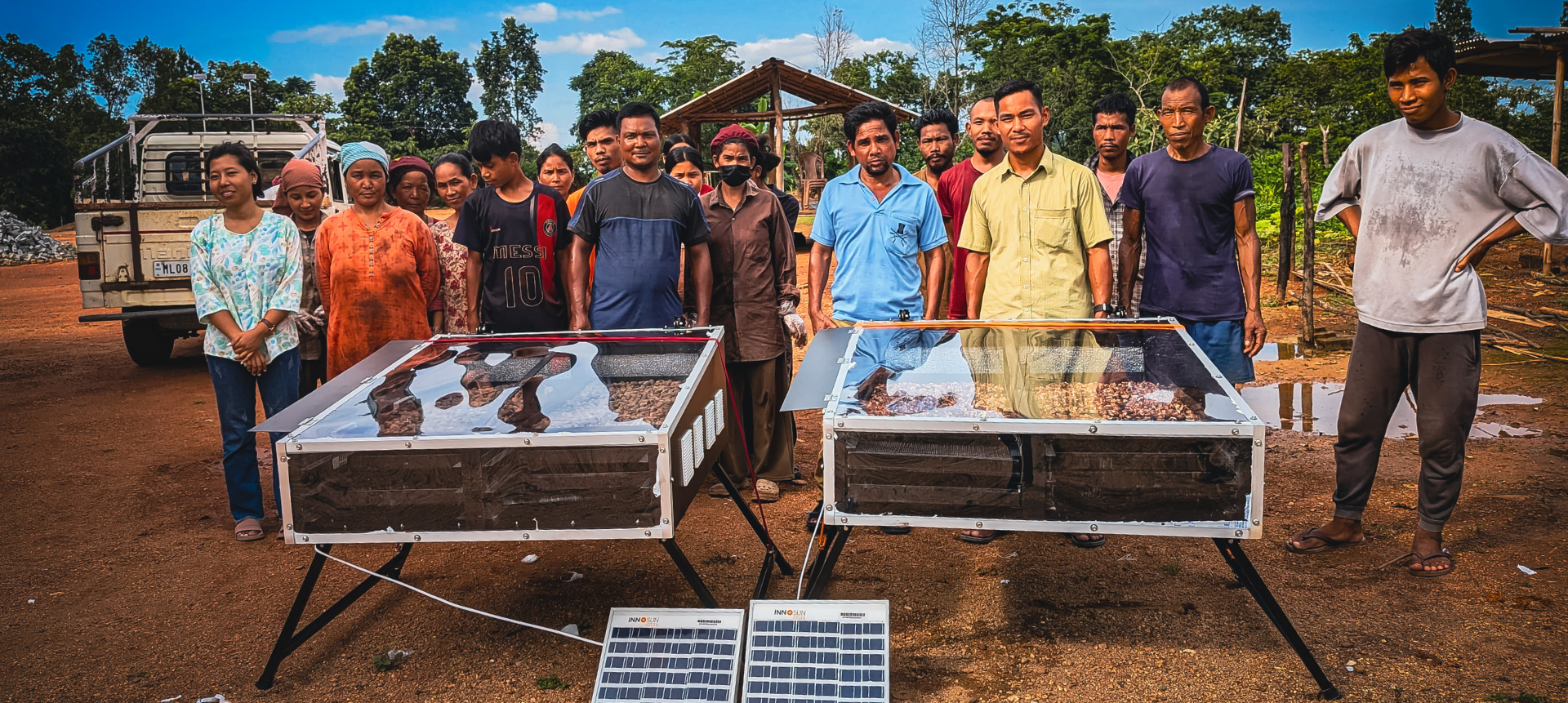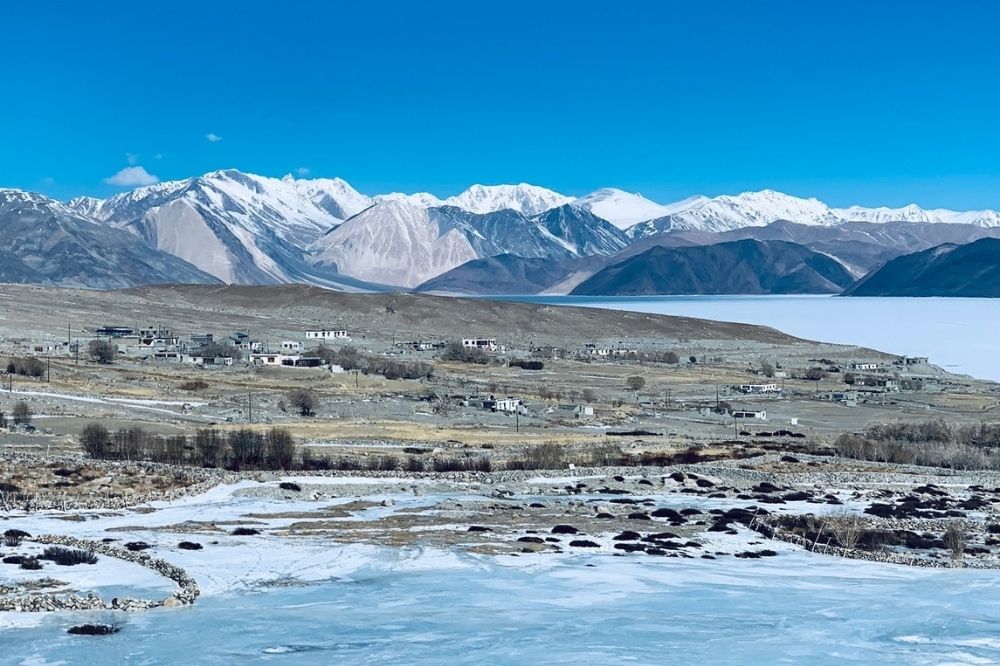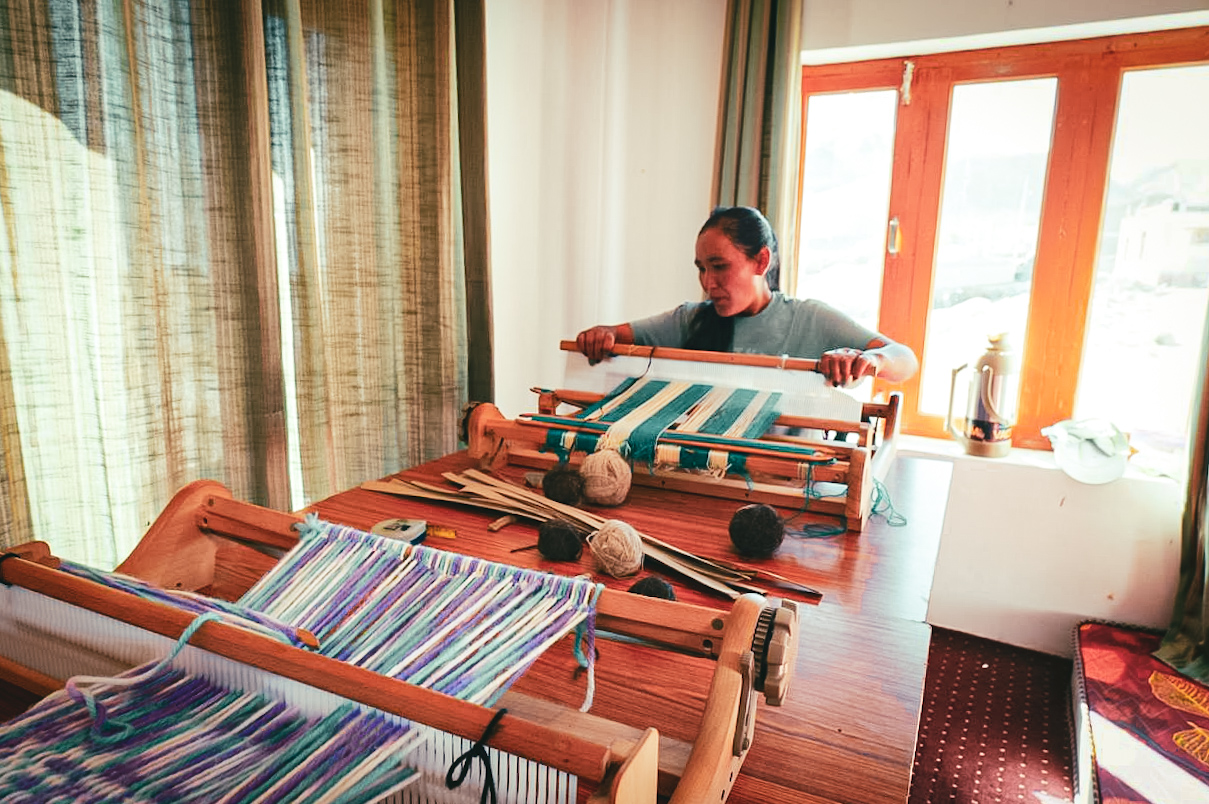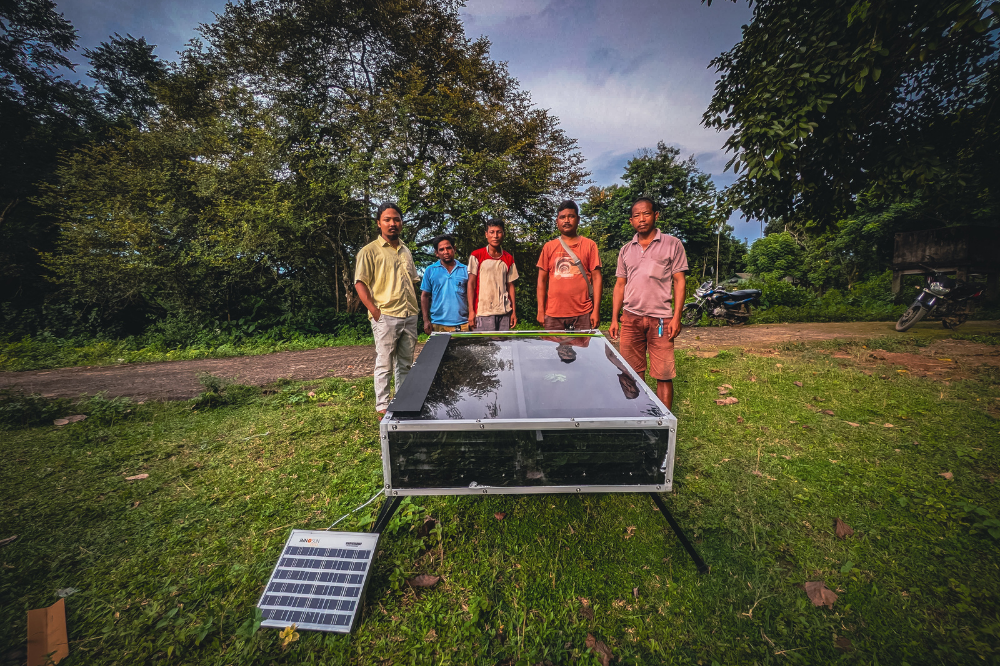Shang-Dong Wolf Traps in Ladakh
GHE Jan 29, 2026
Solar Dryers as Agents of Change

The Garo Hills in Meghalaya are blessed with an abundance of organic treasures such as black pepper, ginger, cashew, pineapple, oranges and many more. These crops nurture families and sustain livelihoods across the region for centuries. Here, farming is a way of livelihood shared by everyone and harvesting period is a season of togetherness when community members of various clans and families come together to collect and collate what the land has given. People sit side by side sorting spices, carrying baskets of fresh produce and laying out fruits and nuts to dry.
For generations, the harvest has been preserved in the simplest way of drying under the open sun. Courtyards filled with trays of cashews, ginger slices, turmeric and black pepper spread out to soak up the warmth.

Pepper before drying
Climate Impact on Communities
The monsoon rains in Meghalaya are very precise with the clouds covering the blue skies by early April and continuing with the consistent downpour till late August and early September. But in the recent years, they have become harder to predict. When produces are laid out in the sun to dry, sudden showers often spoil entire batches. Spices grow mouldy, cashews turn damp and fruits rot before they can reach buyers. Without reliable preservation methods, most produce is sold quickly in village markets at low prices.
The monsoon rains in Meghalaya are very precise with the clouds covering the blue skies by early April and continuing with the consistent downpour till late August and early September. But in the recent years, they have become harder to predict.
When produces are laid out in the sun to dry, sudden showers often spoil entire batches. Spices grow mouldy, cashews turn damp and fruits rot before they can reach buyers. Without reliable preservation methods, most produce is sold quickly in village markets at low prices.
Solar Dryers as a Development Tool
GHE is working to bring efficient solar technologies to remote communities in Garo Hills. The introduction of solar dryers is the first step in this direction offering farmers a reliable way to store and protect their harvest Solar dryers provide a covered and controlled space where crops can dry faster while staying clean and safe. Farmers still dry their produce but now they can do it with confidence.
As part of this initiative, GHE is working with 20 smallholder farmers and women-led Self-Help Groups (SHGs). Each group now has access to clean, solar-powered dryers with a capacity of 15 kg per batch. Alongside the machines farmers receive hands-on training, improve packaging and connect to wider markets. Already, these 15kg solar dryers are in use across multiple villages, helping fasten up the process of drying and preserve spices

Solar Dryers in Usage with Cashews
Reaching the Doorsteps
The real transformation isn’t just about the solar dryers but also about the people who are learning to use them and the opportunities they unlock.
- Starting with conversations: We sit down with SHGs and entrepreneurs to understand their challenges and aspirations.
- Installing the dryers: Once the beneficiaries are ready, the dryers are set up in their community spaces.
- Learning together: Farmers and SHG members learn to operate, clean and maintain the dryers from GHE’s expert technician.
- Maintaining the quality: Farmers receive support to obtain food safety licenses, design packaging and build branding.
- Reaching new buyers: Better packaging and certifications open doors to retailers, online platforms and bulk buyers.
- Continuous monitoring: Regular check-ins and feedback help strengthen both the products and the people behind them.

Beneficiaries with installed Dryers
A Future Rooted in Resilience
Linkage with Community Cafes
The ultimate goal is to link these SHG groups and smallholder farmers with the Community Cafes where travellers can enjoy authentic food produce from these villages. Farmers no longer have to watch their harvests spoil or sell for a fraction of their worth. Solar dryers give them the power to safeguard their produce, value add and earn a price that reflects their effort.
For women-led SHGs and entrepreneurs, the change is even deeper, it’s about stepping forward as entrepreneurs whole gaining confidence and being recognized for their innovative solutions. Across the community, this means less waste, stronger livelihoods and new possibilities that once felt out of reach.

Beneficiary with installed dryer
Latest Blogs
Explore perspectives on the work we do and ways to make an even greater impact together.










0 Comments